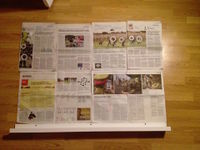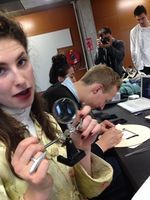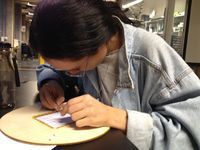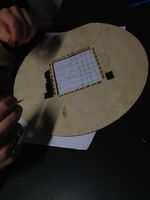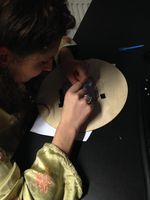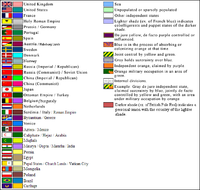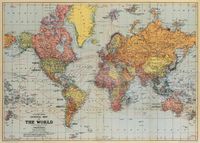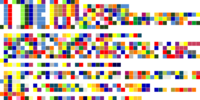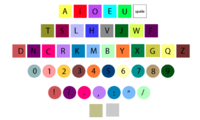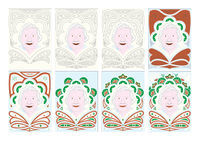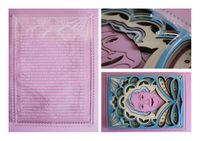Difference between revisions of "User:KvdH/UNRAVEL THE CODE / 2015"
| Line 264: | Line 264: | ||
Of course there are many reasonable excuses why one may not be able to hang out, some of which include, "I've been busy [fill in the blank]." Of course we have plenty of tools to keep the lines of communication open -- from text messaging to Skype. I even started my Facebook page inevitably to keep my family, friends and fans in the loop with my day-to-day activities. The reality is, however, that even these forms of communication are a bit inadequate. The instant and omnipresent world of communication has increased our capacity to connect on a perfunctory level, but in some cases has thwarted our capacity to have real and meaningful face-to-face conversations. | Of course there are many reasonable excuses why one may not be able to hang out, some of which include, "I've been busy [fill in the blank]." Of course we have plenty of tools to keep the lines of communication open -- from text messaging to Skype. I even started my Facebook page inevitably to keep my family, friends and fans in the loop with my day-to-day activities. The reality is, however, that even these forms of communication are a bit inadequate. The instant and omnipresent world of communication has increased our capacity to connect on a perfunctory level, but in some cases has thwarted our capacity to have real and meaningful face-to-face conversations. | ||
I’m not a small-talk fan. “Hot enough for you today?” Who cares, I can’t do anything about it. “Pollen’s really bad this year, huh?” Yes. | I’m not a small-talk fan. “Hot enough for you today?” Who cares, I can’t do anything about it. “Pollen’s really bad this year, huh?” Yes. | ||
| + | |||
| + | ====Six Reasons Small Talk Is Very Important==== | ||
So what’s the point of it all? Why don’t we just agree to ride the elevator or wait at the DMV in peace? | So what’s the point of it all? Why don’t we just agree to ride the elevator or wait at the DMV in peace? | ||
| − | |||
Because small talk is where it all begins—and if you want to get somewhere, it helps, we’re told, to start at the beginning. | Because small talk is where it all begins—and if you want to get somewhere, it helps, we’re told, to start at the beginning. | ||
| − | |||
If that logic doesn’t satisfy, and because bullet points are comforting, here are six reasons that small talk can have a big impact (not least on the 20% of U.S. citizens who aren’t working or actively looking for work but who’d really like a job): | If that logic doesn’t satisfy, and because bullet points are comforting, here are six reasons that small talk can have a big impact (not least on the 20% of U.S. citizens who aren’t working or actively looking for work but who’d really like a job): | ||
| − | |||
'''You Have No Idea Where It Will Go''' Small talk is a gift rarely found in nature or the financial markets: It is a free option—that is, an investment with no initial cost, no risk (other than a temporarily bruised ego) and unlimited upside. Small talk can lead to a host of outcomes, from a merely pleasant exchange to the signing of multimillion-dollar business deal. When a free option comes along, you take it—every time. | '''You Have No Idea Where It Will Go''' Small talk is a gift rarely found in nature or the financial markets: It is a free option—that is, an investment with no initial cost, no risk (other than a temporarily bruised ego) and unlimited upside. Small talk can lead to a host of outcomes, from a merely pleasant exchange to the signing of multimillion-dollar business deal. When a free option comes along, you take it—every time. | ||
| − | |||
'''It Makes You Smarter''' A recent study by researchers at the University Of Michigan found that friendly, social interaction can boost our ability to solve problems—as, say, working a crossword puzzle might. That’s because, as Oscar Ybarra, a psychologist at the university explained: “Some social interactions induce people to try to read others’ minds and take their perspective on things.” (“Social” being the operative word: When conversations had a competitive edge, cognitive performance didn’t budge.) For the full study, click here. | '''It Makes You Smarter''' A recent study by researchers at the University Of Michigan found that friendly, social interaction can boost our ability to solve problems—as, say, working a crossword puzzle might. That’s because, as Oscar Ybarra, a psychologist at the university explained: “Some social interactions induce people to try to read others’ minds and take their perspective on things.” (“Social” being the operative word: When conversations had a competitive edge, cognitive performance didn’t budge.) For the full study, click here. | ||
'''t Feels Good''' Some days the very thought of returning a verbal volley can feel exhausting. Think about it, though: How many times did a little light banter leave you feeling…a little lighter? Humans are social beings: We crave connection—that’s why Facebook founder Mark Zuckerberg is worth $17.5 billion—and small talk, while maybe not scintillating, is a way to connect. | '''t Feels Good''' Some days the very thought of returning a verbal volley can feel exhausting. Think about it, though: How many times did a little light banter leave you feeling…a little lighter? Humans are social beings: We crave connection—that’s why Facebook founder Mark Zuckerberg is worth $17.5 billion—and small talk, while maybe not scintillating, is a way to connect. | ||
| − | |||
'''It Opens Your Eyes''' Small talk makes you pay attention. Yoga types call it “living in the present.” I call it “putting down your stupid smart phone long enough to have a conversation with a human being in three dimensions.” Whatever you call it, it’s a good thing. | '''It Opens Your Eyes''' Small talk makes you pay attention. Yoga types call it “living in the present.” I call it “putting down your stupid smart phone long enough to have a conversation with a human being in three dimensions.” Whatever you call it, it’s a good thing. | ||
Revision as of 19:38, 14 December 2015
Contents
MEME / KARS
In collaboration with Leontien van Hattem
Focus changing meme for the theme: Abuse of Power
Inspired by John Baldessari’s technique, to change the focus in an image by sticking colored dots over faces, we came up with the idea to not hide them away but frame the person who really matters. Put a spotlight on the one who deserves it and giving it more attention. Because in the theme ‘abuse of power’ people sometimes forget what the really deserves: their thirty human rights.
INFRA ORDINARY/ KARS
In collaboration with Lisa Vermeer
Brainstorm
Het effect van energie/straling op mensen
Not enjoying our surroundings
where we keep our phones
The plant-wifi research (straling)
we take our phone in social awkward times instead of smiling to people when we past other people
Filmpje: seeing eye people
putting your phone on a pile
clubs where you have to leave your phone
people swiping on a piece of paper
making a rainbow on your screen with water
telephone is your safety thing, if your battery is dead; hell breaks loose.
we are taking a critical approach. the telephone is a entrainment object, being bored is our enemy. We are to busy keeping our minds of the question why we are here. There is always the restless feeling to find the answer. And when we couldn’t find that answer we start to fill our time with understanding everything else. We took an scientific approach on life. And that was the only one, and we tried to (are trying to) make life as pleasing as possible in the meantime.
The sound of phone triggers every one
Walking like slaves around a pole, the people are connected to the treadmill by cords that charge their phones, by walking in circles they generate energy to charge their phones. they need it, they are slaves.
the effect of phones on speakers
ask people to copy the sound of the dial-up sound with their voice.
creating fear and panic by taking away people’s phone safety feeling
there are also positive sides of phone using.
lowlands phone poles random conversations
security & physical aspects
Research
- We checken onze telefoon 221 keer per dag. http://bewustoffline.nl/verslaafd-aan-je-telefoon/
- Paul Miller voelde zich geisoleerd na een jaar internetloos. http://www.theverge.com/2013/5/1/4279674/im-still-here-back-online-after-a-year-without-the-internet
- er is een afkickkamp in Amerika, Camp Grounded: https://www.lindanieuws.nl/nieuws/afkickkamp-voor-telefoonverslaafden/ http://campgrounded.org/
- telefooncellen zijn bijna uit het straatbeeld verwijderd: er zijn geen telefoons meer te koop bij de albertheijn:
http://www.globalresearch.ca/student-science-experiment-finds-plants-wont-grow-near-wi-fi-router/5336877 http://www.thelightphone.com/#thelightphone http://www.marktplaats.nl/a/audio-tv-en-foto/videocamera-s-sport-en-actiecamera-s/m962417748-hd-sport-actie-camera.html?c=80906a7f13ccf514b11788e5504db095&previousAction=asqSent http://www.bol.com/nl/p/full-hd-action-camera-gopro-extra-batterij-sd-kaart-16gb-wifi/9200000048083611/
http://www.volkskrant.nl/binnenland/slapen-in-een-kooi-tegen-de-gsm-straling~a684743/
http://www.instructables.com/id/CELL-PHONE-RADIATION-SHIELD/
- Elektromagnetische Straling blocking materials pure silver copper, stainless steel nickel
- gsm in europa is 1800Mhz (1,8Ghz)
golflengte (labda)=1/frequentie*constante
golflengte=1/1.800.000.000*300.000.000 eerst delen, dan vermenigvuldig
het antwoord is dan:0.16 m. (16 cm.)
Het kippengaas van mij met 2 cm diameter zou dus prima moeten werken. Ik snap er dan ook niets van waarom mijn gsm het toch doet!?!?
Action
Internet Detox: Is it still possible to live without internet and a mobile phone in this time and place? We are going to test this and see how long we will last before we turn mad. We will capture our thoughts and feelings in writing and filming. There is a set of rules: we can only use technology without internet, and we are not allowed to use our mobile phones. At the end we will bring our findings together, so the fieldresearch/action is the base of our design.
wat gebeurt er als je geen mobile devices gebruikt?
- geen mail
- geen schoolrooster/opdrachten, leraren mailen
- geen whatsapp
- geen facebook (evenementen, verjaardagen enzo)
wat mogen we wel en wat mogen we niet? en waarom mogen we dat wel en waarom niet?
testen hoe wij er op reageren, de generatie die opgegroeid is met mobiele apparaten. is het mogelijk zonder internet deze school te volgen? we gaan niet alleen mobiel loos testen maar ook internetloos. als je het doet moet je het goed doen. iedereen doet het, en gaat er vanuit dat jij het ook doet. en jij stopt er ineens mee. vastleggen met een go pro we moeten er op vertrouwen dat internet op vaste apparaat: niet internet op mobiel apparaat: niet, telefonie op vast apparaat: 1 apparaat op 1 plek telefonie op mobiel apparaat: nee anderen vragen niet bellen of op internet kijken voor ons: niet als er iemand dood is of je bent in levensbedreigende situatie: ja hoeveel nummers mag je opslaan: 10 mensen van te voren laten weten dat je alleen bereikbaar bent op vaste telefoon: ja kijken op een mobiele telefoon/laptop/computer van iemand anders: ja computer gebruiken die thuis staat en zo dus niet mobiel is: ja de tijd aan iemand vragen: ja
Whatsapp van Lena
WhatsApp van Jasper
WhatsApp van Moeder
WhatsApp van Vader
Whatsapp van Marnik
Whatsapp van Leontien
Whatsapp van Nadine
WhatsApp van Laila
Facebook: HEEFT IEMAND HET GOEDE TELEFOON NUNMER VAN KARS? OF LEEFT HIJ NOG? HIJ REAGEERT NERGENS MEER OP. Joe
Facebookchat: Hallo?
Facebookchat: Kars?
Facebookchat: Yo waarom reageer je nergens op?
Facebookchat: Ik probeer je te bereiken!
Facebookchat: Hee kom je vanavond ook?
Facebookchat: Hee zin om bier te drinken?
Sms: Hee kars we vroegen ons af of alles goed met je gaat we hadden al een tijd niks van je gehoord kus
Gemiste oproep van Gideon
Gemiste oproep van Julie
Gemiste oproep van Thuis
Gemiste oproep van Thuis
Gemiste oproep van Thuis
Gemiste oproep van Marnik
Gemiste oproep van Nadine
Gemiste oproep van Nadine
Gemiste oproep van Gideon
Gemiste oproep van Iris
Gemiste oproep van Jasper
Gemiste oproep van Thomas
Gemiste oproep van Thuis
Gemiste oproep van Laila
Gemiste oproep van Laila
Gemiste oproep van Nadine
Results
I made a image who explains the feeling i experienced during the 4 days i was disconnected from the internet and the digital communication devices. I tried to capture all the feelings and experiences. I wrote all the things down and tried to find one word who capture all the thing together: separate
Processing
CRAFTING CORE MEMORY
In collaboration with Lisa Vermeer/Sophie Schulte/Nora Mabrouki
we (Kars, Sophie, Lisa, Nora) have eaten:
a bead (it was kars)
salad
bread with humus
a banana
bread with brie, ham and cheese
krentenbol
bread with salmon
sugar licorice
we crafted:
A critic on holy knowledge. It was supposed to be a circle but the universe wanted it to be a halo. Because that is what people understand. The knowledge is represented in the dataholding copper wire and mini beads. At least, we like to think it does, but it doesn't.
FUTURE MEMORIES / KARS
FUTURE MEMORY ALPHABET
In collaboration with Nora Mabrouki
Proces/Research
We started with the idea to collect all kind of memories from people. We wanted to translate these memories in shape and intensify them by using the human senses. This and a couple of other similar ideas didn't really seemed to work out for us in the end. So we moved on.
After doing more research we found out that colours stimulate memory and creativity.
Research shows that:
- Color can increase brand recognition by 80%.
- In a clinical setting the use of color can help reduce in specific memory problems such as learning difficulties, autism, dyslexia.
- The use of color can reduce the reading difficulties of dyslexia.
- The reading rate of people with autism who used a colored overlay went up 35 % in advance.
- Colour is also used to treat patients suffering from Alzheimer's disease.
- Colors have the potential to attract our attention and raise attention levels, this way it helps us to remember things better.
The Right Colours Make Data Easier To Read:https://hbr.org/2014/04/the-right-colors-make-data-easier-to-read/
The next idea was to make an alphabet out of only colours. To make the right cross over from letter to colour we looked at how the computer reads text. By using the binaire code from a letter and translating this to a HEX code. This was possible but by each letter you could only get a third of the HEX, which means you would need three letters to get one colour. This was almost impossible to realize in processing.
We started thinking about en researching for everything we could find about memory. One of the most interesting things we found was that colours stimulate memory and creativity
The Right Colours Make Data Easier To Read:https://hbr.org/2014/04/the-right-colors-make-data-easier-to-read/
Binary To Code: http://www.binaryhexconverter.com
Concept
We designed an alphabet consisting out of colours. We used squares for the 26 letters of the alphabet and cirkels for the digits 0 till 9. We based our colours on an universal palet of colours used for mapping countries. The colours are incompatible with other colours so that you can see the difference between countries. This is perfect for making an alphabet, there must be a clear contrast and separation.
End Result
We wrote a program in processing. Where we could translate letters in to colours. After this we were able to translate any text we would like. As an example we translate the wiki page into an publication. You need time and diseplin to read the hole text and thats also a part of the statement we want to make. Photo's of the publication will follow.
Processing Code
Q10 / KARS
Question
Can I advance direct contact between people? (without using phones or social media)
Brainstorm
Research
Why It's Important to Connect and Have a Conversation
http://www.huffingtonpost.com/summer-rayne-oakes/human-connection-conversation_b_3143654.html
Of course there are many reasonable excuses why one may not be able to hang out, some of which include, "I've been busy [fill in the blank]." Of course we have plenty of tools to keep the lines of communication open -- from text messaging to Skype. I even started my Facebook page inevitably to keep my family, friends and fans in the loop with my day-to-day activities. The reality is, however, that even these forms of communication are a bit inadequate. The instant and omnipresent world of communication has increased our capacity to connect on a perfunctory level, but in some cases has thwarted our capacity to have real and meaningful face-to-face conversations.
I’m not a small-talk fan. “Hot enough for you today?” Who cares, I can’t do anything about it. “Pollen’s really bad this year, huh?” Yes.
Six Reasons Small Talk Is Very Important
So what’s the point of it all? Why don’t we just agree to ride the elevator or wait at the DMV in peace? Because small talk is where it all begins—and if you want to get somewhere, it helps, we’re told, to start at the beginning. If that logic doesn’t satisfy, and because bullet points are comforting, here are six reasons that small talk can have a big impact (not least on the 20% of U.S. citizens who aren’t working or actively looking for work but who’d really like a job):
You Have No Idea Where It Will Go Small talk is a gift rarely found in nature or the financial markets: It is a free option—that is, an investment with no initial cost, no risk (other than a temporarily bruised ego) and unlimited upside. Small talk can lead to a host of outcomes, from a merely pleasant exchange to the signing of multimillion-dollar business deal. When a free option comes along, you take it—every time.
It Makes You Smarter A recent study by researchers at the University Of Michigan found that friendly, social interaction can boost our ability to solve problems—as, say, working a crossword puzzle might. That’s because, as Oscar Ybarra, a psychologist at the university explained: “Some social interactions induce people to try to read others’ minds and take their perspective on things.” (“Social” being the operative word: When conversations had a competitive edge, cognitive performance didn’t budge.) For the full study, click here.
t Feels Good Some days the very thought of returning a verbal volley can feel exhausting. Think about it, though: How many times did a little light banter leave you feeling…a little lighter? Humans are social beings: We crave connection—that’s why Facebook founder Mark Zuckerberg is worth $17.5 billion—and small talk, while maybe not scintillating, is a way to connect.
It Opens Your Eyes Small talk makes you pay attention. Yoga types call it “living in the present.” I call it “putting down your stupid smart phone long enough to have a conversation with a human being in three dimensions.” Whatever you call it, it’s a good thing. You’ll Be Liked. If you want, as the book says, to make friends and influence people, being liked is important. People like people who are generous (and confident) enough to engage them. Small talk isn’t just about being gregarious or entertaining—it’s a gesture of respect.
You Have No Choice Getting a job, working with colleagues, winning new clients, entertaining existing ones—all of it requires small talk. Want to be on a path to the 1%? Better have the gift of gab. As Scott Hoover, associate professor of finance at Washington and Lee University, writes in his excellent primer How To Get A Job On Wall Street: “In trying to generate business, the deal pitch is obviously critical. What is not so obvious is that simple, seemingly innocuous conversation with potential clients can be just as important. Companies want to hire people who can think on their feet.” (For more useful nuggets like that, check out Ten Things They Don’t Tell You In Business School.)
Now that you’re convinced small talk is worth the effort, here’s how to get better at it. Ready? Practice. Try stuff out, see what works. That’s it. As for technique, remember the basics: make eye contact, drop a compliment (if you mean it), share a common experience (while keeping the focus on the other person), and don’t be too self-conscious.
Short on confidence? No problem. Even big dogs have confidence issues. Here’s some sage advice from psychiatrist, executive coach and Forbes contributor Steven Berglas:
“Building self-confidence is a two-phase process. The first phase involves purging yourself of self-doubt; in the second, you build up your confidence. It’s like erecting a skyscraper: First you clear the site and lay a solid foundation, then you stack the superstructure. How high you go–how much confidence you muster–is up to you.”
